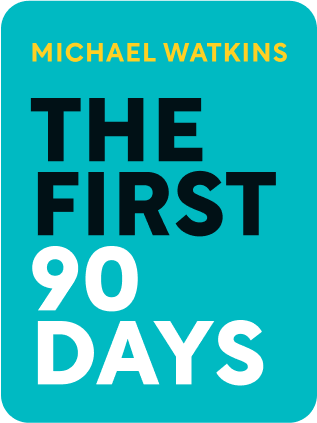

This article is an excerpt from the Shortform book guide to "The First 90 Days" by Michael Watkins. Shortform has the world's best summaries and analyses of books you should be reading.
Like this article? Sign up for a free trial here .
Have you been laid off or presented with a more lucrative job opportunity? What challenges will this transition bring into your life?
Whatever the reason, job transition is a major change that presents a host of challenges in both occupational and social spheres. Accordingly, it’s important to manage yourself by supporting your psychological transition and the transition of your family.
Here are some tips on how to make a transition to a new job as smooth as possible.
Transitioning Jobs
Job transitions are stressful and overwhelming not only because of the potential implications for your career but because your personal life will be impacted as well.
During your professional transition, you might be losing access to your normal support network, and your family might be undergoing significant changes as well. And yet, you will likely also have greater responsibility than before.
These issues were all at play for Stephen when he accepted a new position at his firm’s unit in Canada. Not only would his family be moving from New York to Toronto, his children would need to change schools in the middle of the year, his wife would need to find new clients for her freelance work, and Stephen would need to build a new professional network while proving himself in his new role. Without a plan for managing these moving pieces, Stephen risked reaching a stage of burnout that would undermine his ability to be successful overall.
By choosing to proactively manage all aspects of your job transition, you can fend off potential burnout and build a positive foundation for you and your family.
Manage Your Stress Levels
Start by taking stock of how you are feeling by using the structured reflection guide outlined below:
How do you feel so far? On a scale of high to low do you feel:
- Excited? If not, why not? Are there any steps you can take to change this?
- Confident? If not, how can you build security around the transition?
- Agency over your own success?
- Disconnected? Are there gaps in key contacts you need for a smooth transition?
- Concerned? Have you already observed certain dynamics in meetings or early interactions that worry you?
- Proud? Are there moments or steps that you have already handled well? By contrast, have you recognized some things you could have handled differently?
Based on these observations, try to identify the biggest challenges or obstacles you face moving forward. Are those impediments informed primarily by situational considerations? Or are they perhaps a reflection of something within your own control? For example, consider the following possible personal weaknesses you may have that are undermining your ability to transition effectively:
- Inability to draw healthy boundaries which renders you vulnerable to a sense of overwhelm and being pulled unsustainably in too many directions.
- Defensiveness which may result from insecurity related to the transition. It can catalyze problematic behavior such as unwillingness to take other’s opinions into consideration or doubling down on bad ideas for fear of looking weak or incompetent.
- Isolation caused by failure to establish necessary connections or to establish an approachable tone.
- Avoidance based on fear of making big decisions early on or shouldering the responsibility for tough HR calls. Those choices may be painful but cannot be avoided—they will only stew and grow if left unattended.
Any one of these tendencies, or several of them in tandem, can contribute to a heightened sense of stress. It’s well documented that a healthy amount of stress can be essential for propelling action. However, as stress levels increase, you’ll eventually reach a point where your performance is either undermined or you burn out completely.
Understand the Three Pillars of Self-Management
First, adopt 90 day strategies by applying learning from the previous 8 chapters to build a foundation of success and confidence that will help provide a path forward in the face of personal stressors that arise during transition. If or when you identify a new stressor, see if you can categorize the source of that stress within one of the eight principles discussed up to this point. Then return to that chapter and ensure that you are employing the tools discussed.
Second, develop personal disciplines or regular habits that will help ensure your success. Some examples include:
- Creating explicit opportunities (perhaps through daily or weekly check-ins) to evaluate your plans of action and reflect on how progress is going and whether any changes need to be made.
- Prioritizing effectively by blocking off time on your calendar for proactively pursuing your medium and long term goals. Without that time you may find yourself constantly bogged down by putting out fires.
- Avoiding the tendency to overcommit by erring on the side of either getting back to people later or simply saying no.
- Taking a step back when you are feeling emotionally overwhelmed so that you can evaluate the challenge from a broader perspective before you react.
- Allocating time to improving self-awareness by writing down examples on a daily or weekly basis about what you learned from your reactions to a challenging situation.
- Avoiding burn out by knowing when to quit. Sometimes putting in that extra hour now—while tempting—undermines your ability to engage in a sustainable fashion long term. Take a break and decompress as needed.
Third, build your support systems by getting the basics lined up. Establish goals, processes, and routines to get your office up and running effectively so that you have a good foundation to work from. Remember also to allocate energies to getting your personal life stabilized as much as possible. Consider the following for facilitating a smooth familial transition:
- Recognize that small but essential actors in your life may need to be replaced (e.g., doctors, teachers, coaches, dentists, and so on). Prioritize key relationships and find new resources you all feel good about.
- Support your partner’s transition process by encouraging a proactive job search or asking for job placement support from your company.
- Consider the timing of a move—taking kids out of school in the middle of the year can take a substantial toll.
- Reestablish essential and favorite family routines as quickly as possible.
- Seek out resources for cross-cultural transitions to help mitigate against isolation and loneliness.
- Use your company’s relocation services.
Fourth, build and sustain your personal support network for advice and counsel. Include relationships both inside and outside of your organization that can serve as:
- Technical advisers (who can provide you with support and insight into markets, strategy, and so on)
- Cultural interpreters (who can educate you on key norms, language, and guiding assumptions of your new role)
- Political counselors (who understand the dynamics of implementation within your company)
Create a blend of qualities within your network such as:
- People who have insider knowledge and also people who can opine more dispassionately
- External advisers who are focused on your personal needs and interests, not those of your company (e.g., colleagues, mentors, friends)
- Representatives from a broad range of key constituencies who can help you develop a comprehensive and well-informed perspective
Ultimately, it’s important to focus on the day-to-day. By managing the small choices that you make you are also managing the way that momentum builds and which direction it points you in over the long-term.

———End of Preview———
Like what you just read? Read the rest of the world's best book summary and analysis of Michael Watkins's "The First 90 Days" at Shortform .
Here's what you'll find in our full The First 90 Days summary :
- A field guide for anyone undergoing professional transition
- How to develop strong relationships with your new colleagues
- Why early wins are so important






